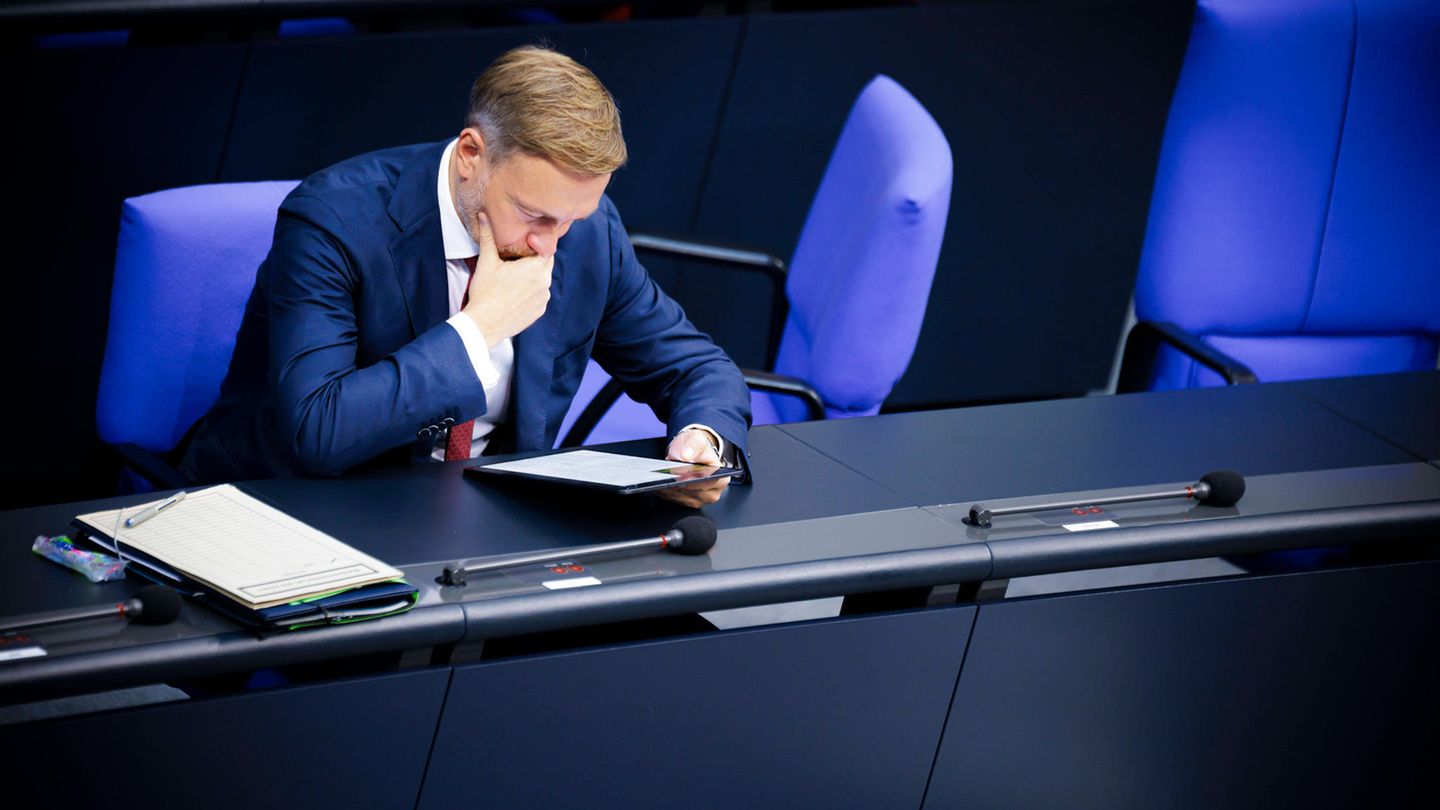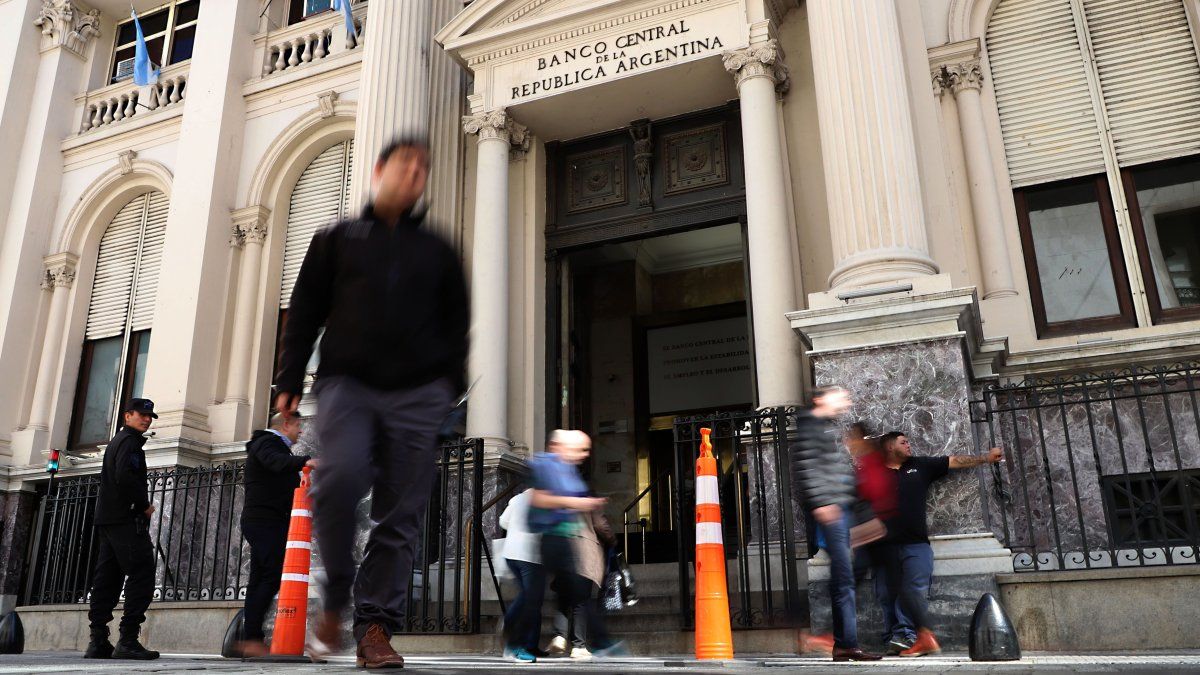The federal, state and local governments will receive almost 13 billion euros less in tax money in the coming year. And the forecasts for the following years also look bleak.
Some in the traffic light coalition had great hope in these numbers: How much tax revenue will come into the coffers next year – and will it possibly help to solve the tricky problem with the 2025 federal budget? Now the estimators have published their forecast and it is clear: there is a mini-relief for the budget of Finance Minister Christian Lindner (FDP). But tax revenue alone cannot solve the problem.
For the state as a whole, i.e. federal, state and local governments together, the estimators predict tax revenue of 982.4 billion euros for 2025. That is 12.7 billion euros more pessimistic than in May. Things also look poor for the current year with a loss of 8.7 billion euros. Estimators now expect 58.1 billion euros less tax revenue by 2028 than in the spring.
For the federal government alone, the estimators expect a mini plus of 0.7 billion – but this is mainly due to changes in transfers to the EU. Compared to the spring expectations on which Lindner’s budget draft is based, this hardly offers any new scope. “On the contrary: We will have to consolidate additionally. Not every state service will still be possible,” explained the FDP leader when presenting the figures in Washington. “We need economic growth.”
The unfinished federal budget
The traffic light government wants to spend almost 490 billion euros next year, more than a tenth of it on credit. The debt brake allows this. However, the opposition, the Court of Auditors, the Bundesbank and economists still consider Lindner’s figures to be more or less dubious or unrealistic.
The FDP leader gave the MPs a difficult task because until the end he was unable to agree with Chancellor Olaf Scholz (SPD) and Vice Chancellor Robert Habeck (Greens) on where money should be saved. This meant there was a funding gap of two to three billion when the draft went to the Bundestag.
Tax revenue: Union suspects an even larger financing gap
The MPs now have to raise this money. Having to take such a massive ax to the budget “is actually not parliament’s job,” SPD housekeeper Bettina Hagedorn recently complained to “Politico.”
Some hoped for the tax estimate, but 0.7 billion does not close the gap. It could help that funding for the Intel location in Magdeburg is not needed for the time being due to the postponement. In 2025 that would be three billion – but Scholz, Habeck and Lindner do not yet agree on how to use it.
Legislation à la traffic lights
The rules are clear. But why make it easy when you can make it difficult?
The Union also believes that the financing gap is much larger than the traffic light indicates. She considers the forecasts for citizens’ money and the effect of the planned growth initiative with tax relief and work incentives to be glossed over. Union parliamentary group deputy Mathias Middelberg already warned in the “Neue Osnabrücker Zeitung”: If the traffic light coalition decides on the budget in this way, “there is a risk of a spontaneous stop to funding programs again in 2025”.
The tumbling economy
A key reason for the results of the tax estimate is the federal government’s poor expectations of economic development. “The challenges are greater than we have perhaps admitted to ourselves in recent years,” said Economics Minister Habeck recently.
He has just announced the second recession in a row for 2024. Economic output is shrinking, among other things, because companies and private individuals are holding back on investments given the geopolitical situation. Habeck admitted that arguments within the traffic lights also contribute to the uncertainty.

Budget 2024: “A development program for populists, not for the traffic lights”
03:15 minutes
More scope for new debt
However, the poor economy also gives Lindner scope for new loans through a mechanism in the debt brake. The finance minister will be able to borrow around 5.4 billion euros more next year than initially thought. This helps to close the financing gap – but whether it closes it completely is uncertain, because when the economy is weak you usually have to offset higher expenses, for example with citizens’ money
The Greens and the SPD have not given up hope of making an exception to the debt brake or setting up debt-financed special funds outside the budget. This is how Economics Minister Robert Habeck’s new idea – an investment fund for the economy – could be financed. Lindner rejects new special funds – and now has a new argument in this debate: Germany is finding it difficult to comply with the EU’s debt rules. And here special assets fully count – unlike when calculating the national debt brake. In Brussels the following applies: debts are debts.
The budget roadmap
After the tax estimate, things are now getting serious in the Bundestag. The householders still have three weeks to raise the missing billions. Then there is the cleanup meeting in the budget committee – the legendary showdown that usually lasts until the early hours of the morning. As things currently stand, the budget should be decided in the large plenary session at the end of November.
Note: This article has been updated.
Source: Stern
I have been working in the news industry for over 6 years, first as a reporter and now as an editor. I have covered politics extensively, and my work has appeared in major newspapers and online news outlets around the world. In addition to my writing, I also contribute regularly to 24 Hours World.




